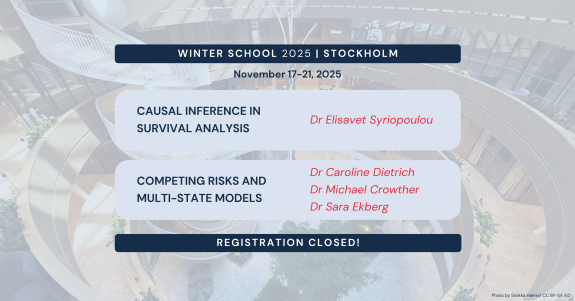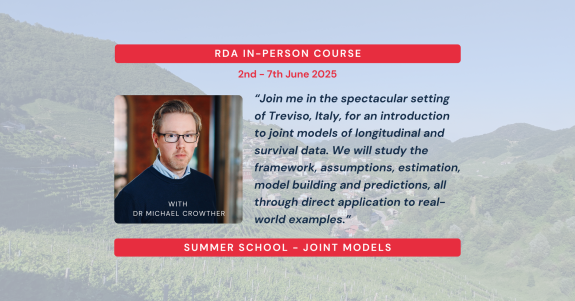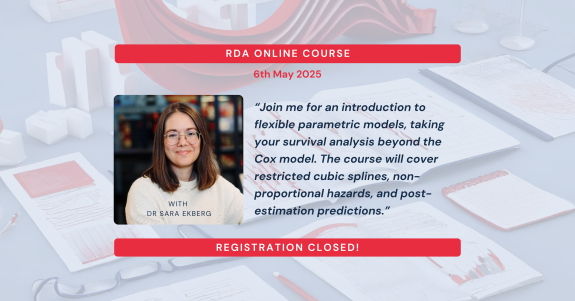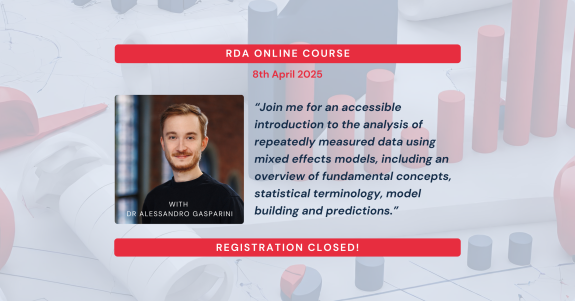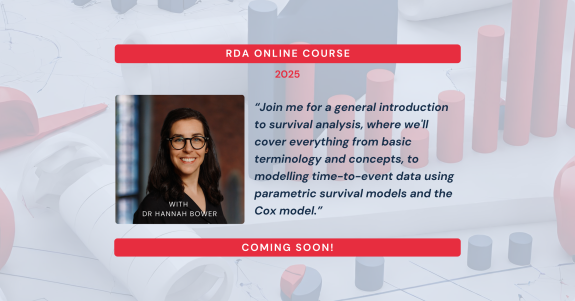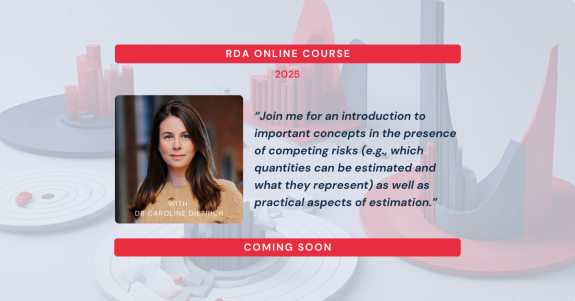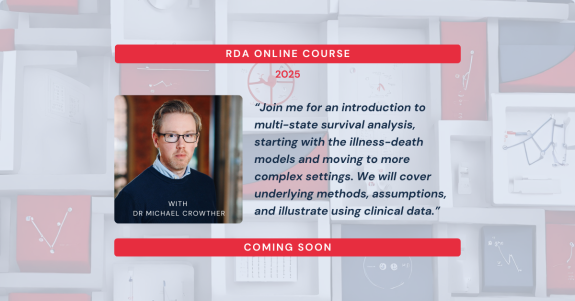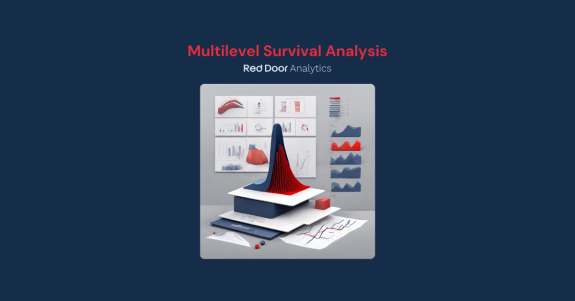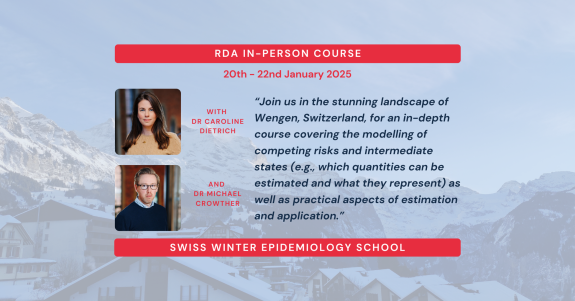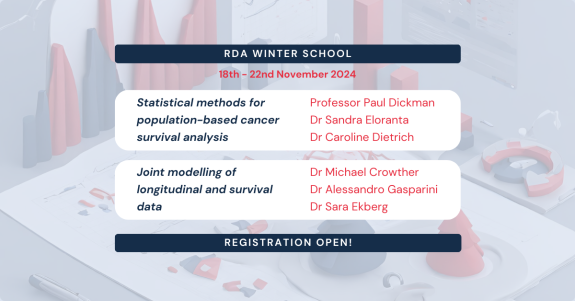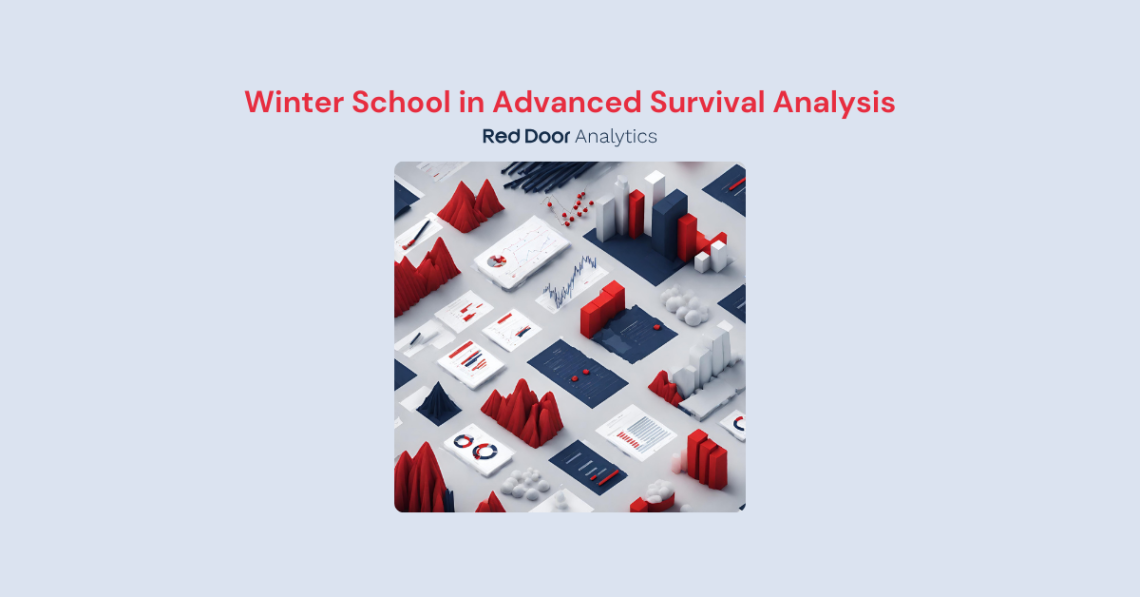
When & Where
20th – 24th November 2023
Berghs School of Communication, Bobergsgatan 48, Stockholm 11542, Sweden
Schedule
Flexible parametric survival analysis, with Professor Paul Dickman
Monday 20th November, 9am – 5pm
Parametric survival models are being increasingly used as an alternative to the Cox model in biomedical research. Through direct modelling of the baseline hazard function, we can gain greater understanding of the risk profile of patients over time, obtaining absolute measures of risk. Flexible parametric survival models (FPMs) incorporate restricted cubic splines on the log hazard or log cumulative hazard scale. This course will introduce the concepts, methods & software of FPMs, including extending to time-dependent effects (non-proportional hazards). We will illustrate their numerous benefits through real-world applications.
Competing risks, with Dr Caroline Dietrich
Tuesday 21st November, 9am – 5pm
Competing risks models play an increasingly important role for predicting absolute risks of disease and prognosis using time to event data. An overarching goal of this course is to provide a solid introduction to important concepts in the presence of competing risks (e.g., which quantities can be estimated and what they represent) as well as practical aspects of estimation.
Multi-state models I, with Dr Michael Crowther
Wednesday 22nd November, 9am – 4.30pm
Multi-state models allow us to model complex disease processes over time. Through the modelling of transitions between disease states, accounting for competing events at each transition, we can gain a much richer understanding of patient trajectories and how risk factors impact over the entire disease pathway. This course will introduce the concepts, methods & software of multi-state models.
Followed by a Masterclass session with guest speaker Professor Jonathan Bartlett, with Q&A hosted by Professor Paul Dickman, and reception, 5pm – 7.30pm
Multi-state models II, with Dr Michael Crowther
Thursday 23rd November, 9am – 5pm
In day 2 of multi-state models, we will focus on obtaining clinically useful and directly interpretable predictions, which are particularly useful for more complex models, but also describe the challenges and various approaches to calculating them. We will also discuss assumptions of the models, including the Markov assumption and how this can be relaxed.
Joint modelling of longitudinal and survival data, with Dr Michael Crowther
Friday 24th November, 9am – 5pm
Joint models provide an effective solution to modelling a longitudinal, repeatedly measured outcome (such as blood pressure), and a survival endpoint (such as the time to death from any cause), incorporating all of the unique features that such data can entail. This course will introduce the statistical framework, underlying assumptions, estimation, model building and predictions, all motivated by clinical examples and implemented in user-friendly software.
Register
Registration now closed.
FAQs
- What is the School fee?
- Registration fees for the five-day Winter School are:
- PhD student 10,500 SEK (excluding VAT)
- Academic/Industry 15,750 SEK (excluding VAT)
- Registration fees for individual days are:
- PhD student 2,500 SEK (excluding VAT)
- Academic/Industry 3,750 SEK (excluding VAT)
- Registration fees for the five-day Winter School are:
- What is included in the School fee?
- The School fee includes the course materials (digital & printed versions), as well as lunches and coffee breaks, and a networking reception on Wednesday. Participants who register for individual courses are also very welcome to attend the networking reception.
- What happens after I submit a registration request?
- Once the registration form has been successfully submitted, you will receive (within a week) an invoice for the School fee. Your place will be provisionally held until full payment has been received, after which you will receive confirmation that your place is secured. Full payment must be received prior to the School.
- What should I bring?
- Please bring a laptop for use in the practical sessions.
- What software will be used?
- All lectures and practicals will use Stata, with support for Stata version 15 or higher. A temporary Stata license can be provided if requested when you register. Example R code will also be provided for some of the lectures & practicals.
- What if I need to cancel?
- Cancellation must be done by e-mail at least 4 weeks before the School starts, in which case a full refund will be given. If cancellation is requested 7-28 days before the School, 50% of the fee will be refunded. If cancellation is requested within 7 days of the School starting, no refund will be given. Red Door Analytics AB reserves the right to cancel or postpone any course or School, in which case fees will be refunded in full. In the case of cancellation, Red Door Analytics AB will not be held liable for registrants travel or accommodation costs. Please ensure you have travel insurance for the duration of your trip and the School.
- Do I need to include any documentation in my registration?
- If you are registering as a PhD student, please email a copy of your student ID or a signed letter from your supervisor confirming your student status (on university letter headed paper), to [email protected]. This must be received before an invoice can be sent.
- What payment methods are accepted?
- Following submission of the registration form, an invoice will be sent to the specified email address, with payment due within 30 days. Card payments are not accepted.
- Where should I stay?
- We recommend the following hotels, which have easy travel links to the School location:
Scandic Continental, T-Centralen
Clarion Hotel Sign, Norra Bantorget
Elite Hotel Karolina Tower
- We recommend the following hotels, which have easy travel links to the School location:
- How do I get there?
- By air
Arlanda Airport is the closest airport to Stockholm, with international connections to the rest of the world.From the airport
You can travel from Arlanda airport to Stockholm city using any of the following:- Arlanda Express fast train, takes just under 20 minutes to Stockholm C (round trip ticket 600 SEK, https://www.arlandaexpress.com/)
- Flygbussarna bus, takes approximately 50 minutes to Stockholm C (one-way trip 129 SEK, https://www.flygbussarna.se/en/arlanda)
- Commuter train, takes approximately 40 minutes to Stockholm C (one-way trip 171 SEK, https://sl.se/en/in-english/fares–tickets/visitor-tickets/travel-to-and-from-arlanda-airport)
- Taxi (one way to central Stockholm, 750 SEK). We recommend taxi firms “Taxi Stockholm” or “Taxi Kurir”
By train
Trains arrive at the Central station, connected to many parts of Europe.
- By air
- Will sessions be available online?
- This is an in-person event only, and sessions will not be recorded.
- I need a visa to attend, what do I do?
- Participants are responsible for obtaining a visa to Sweden, if necessary. We urge applicants to contact the course administration ([email protected]) as early as possible, if they require an invitation letter.
- I can’t find the answer to my question, what should I do?
- We’d be delighted to hear from you – just send your question to [email protected] and we’ll get back to you as soon as possible.

